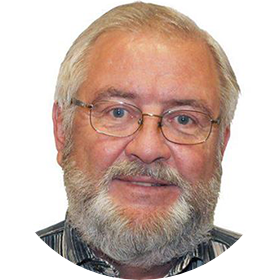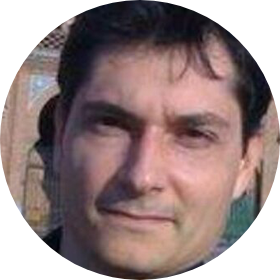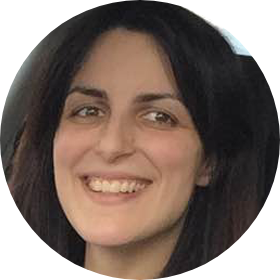Welcome to SESDE 2021!
Dear Sir/Madam,
innovations and improvements are required to react quickly to the new trends of the global economy. Over the years, Modeling & Simulation (M&S) has proved to be one of the most effective, beneficial and successful methodologies to investigate and study complex systems belonging to various sectors/areas. Nevertheless, to take full advantage of this technology there are relevant issues that keep challenging the researchers towards even more advanced solutions and approaches where emerging and cutting-edge technologies are absorbed into. M&S is widely and successfully applied in many application domains, ranging from industry to social sciences, from logistics to military, from energy to healthcare; in this sense M&S provides a multidisciplinary perspective where theory and data from different fields can be used to build models and simulations that provide insights in to the system considered.
The 2021 International Workshop on Simulation for Energy, Sustainable Development & Environment (SESDE) will be a platform for knowledge exchange, the review and discussion of theoretical advances, research results, and industrial experiences, among scientists, researchers, decision makers, practitioners and students dealing with the topics under the umbrella of multidisciplinary modeling & simulation.
Therefore, we would like to kindly invite you to take an active part in this conference and in the co-located events that will be held at Krakow, Poland on September 15-17, 2021 and explore with us the latest news, views and developments in the exciting world of multidisciplinary modeling & simulation.
Sincerely,
I3M 2021 Organization Committee

Topics & Tracks
Authors are kindly invited to include in their papers and presentations all the research works, case studies and application both theoretical and applied. Topics of interests include the following topics, however different ones concerning Modeling & Simulation in Industry are welcome.
- Topics
- Climate change: Global warming, Global dimming, Fossil fuels, Sea level rise, Greenhouse gas, Ocean acidification, Shutdown of thermohaline circulation, Environmental impact of the coal industry, Urban Heat Islands
- Conservation: Species extinction, Pollinator decline, Coral bleaching, Holocene extinction, Invasive species, Poaching, Endangered species
- Energy: Energy conservation, Renewable energy, Efficient energy use, Renewable energy commercialization, Environmental impact of the coal industry, Environmental impact of hydraulic fracturing
- Environmental degradation:
Eutrophication, Habitat destruction, Invasive species - Environmental health: Air quality, Asthma, Environmental impact of the coal industry, Electromagnetic fields, Electromagnetic radiation and health, Indoor air quality, Lead poisoning, Electronic Data Interchange, Sick Building Syndrome, Environmental impact of hydraulic fracturing
- Genetic engineering: Genetic pollution, Genetically modified food controversies
- Intensive farming: Overgrazing, Irrigation, Organizational Modeling, Monoculture, Environmental effects of meat production, Slash and burn, Pesticide drift, Plasticulture
- Land degradation: Land pollution, Desertification
- Soil: Soil conservation, Soil erosion, Soil salination
- Land use: Urban sprawl, Habitat fragmentation, Habitat destruction
- Nuclear issues: Nuclear fallout, Nuclear meltdown, Nuclear power, Nuclear weapons, Nuclear and radiation accidents, Nuclear safety, High-level radioactive waste management
- Overpopulation: Burial, Water crisis, Overpopulation in companion animals, Tragedy of the commons, Gender Imbalance in Developing Countries, Sub-replacement fertility levels in developed countries
- Ozone depletion: CFC, Biological effects of UV exposure
- Pollution: Environmental impact of the coal industry, Nonpoint source pollution, Point source pollution, Light pollution, Noise pollution, Visual pollution
- Water pollution: Environmental impact of the coal industry, Acid rain, Eutrophication, Marine pollution, Ocean dumping, Oil spills, Thermal pollution, Urban runoff, Water crisis, Marine debris, Microplastics, Ocean acidification, Ship pollution, Wastewater, Fish kill, Algal bloom, Mercury in fish, Environmental impact of hydraulic fracturing
- Air pollution: Environmental impact of the coal industry, Smog, Tropospheric ozone, Indoor air quality, Volatile organic compound, Atmospheric particulate matter, Environmental impact of hydraulic fracturing
- Reservoirs: Environmental impacts of reservoirs
- Resource depletion: Exploitation of natural resources, Overdrafting
- Consumerism: Consumer capitalism, Planned obsolescence, Over-consumption
- Fishing: Blast fishing, Bottom trawling, Cyanide fishing, Ghost nets, Illegal, unreported and unregulated fishing, Overfishing, Shark finning, Whaling
- Logging: Clearcutting, Deforestation, Illegal logging
- Mining: Acid mine drainage, Environmental impact of hydraulic fracturing, Mountaintop removal mining, Slurry impoundments
- Toxins: Chlorofluorocarbons, DDT, Endocrine disruptors, Dioxin, Toxic heavy metals, Environmental impact of the coal industry, Herbicides, Pesticides, Toxic waste, PCB, Bioaccumulation, Biomagnification, Environmental impact of hydraulic fracturing
- Sustainability: Economic, Social, Environmental, Financial, Cultural
- Transportations: Emissions, Traffic, Green Logistics
- Waste: Electronic waste, Litter, Waste disposal incidents, Marine debris, Medical waste, Landfill, Leachate, Environmental impact of the coal industry, Incineration, Great Pacific Garbage Patch, Exporting of hazardous waste, Environmental impact of hydraulic fracturing
Tracks
Chair: Daniel Buchbinder
Affiliation: Alterna (Guatemala)
Track Description: TThe track aims at providing the latest research findings, innovations, advances and best practices in the areas of planning for sustainable land use and transport, traffic management and engineering, green logistics and intelligent transport systems adopting modelling and simulation. Topics of interest include, but are not limited to:
- Marketing
- Sustainable production and consumption systems
- Green marketing
- Green/social labels, certifications, standards, seals
- Consumer behavior
- Planned obsolescence
- Over-consumption
- Responsible consumption
- Micro-economics
- Consumer power
Co-Chairs: (a)M.R. Riazi, (b)Emre Artun
Affiliation: (a)Kuwait University (Kuwait), (b)Istanbul Technical University (Turkey)
Track Description: The track aims at providing the latest research and developments, innovations, advances and best practices in the areas of modeling and simulation and computer software developments applicable to the entire hydrocarbon industry including oil, gas and coal, formation, production and processing industries. Topics of interest include, but are not limited to:
- Reservoir simulation and modeling
- Geomodeling for hydrocarbon reservoirs
- Integrated production modeling for hydrocarbon reservoirs
- Simulation of pool-forming and petroleum evolution systems
- Process simulation and modeling for the petroleum and petrochemical industry
- Modeling and simulation of refining and petrochemical plants
- Oil spill modeling and simulation
- Modeling of environmental problems in oil, gas and coal industry
- Computer software development in the petroleum industry
- Modeling and simulation of transportation systems for oil and gas and related products
- Modeling of geothermal resources, production and utilization
Co-Chairs: (a)Ammar Al-Bazi, (b)Nooriya Abed Mohammed
Affiliation: (a)Coventry University (United Kingdom), (b)Friedrich Alexander Universität Erlangen (Germany)
Track Description: The integration of simulation with power and energy systems is providing promising solutions to deal with the increasing complexity of the energy sector. In particular, simulation technology is used to model uncertainties inherent in complex demand problems in the power and energy domain, as it facilitates the modelling of dynamic environments. This then enables the best management of the planning and distribution of energy.In addition, simulation modelling is also used to address challenges associated with the management of distributed generation, renewables, and consumption flexibility. This has resulted in the generation of technologies for efficiency improvements. This track brings together the latest advances and trends in energy systems simulation and optimisation. Contributions are welcome on all kinds of simulation and optimisation solutions for power and energy systems, including both theoretical and practical applications. Topics of interest include, but are not limited to:
- Energy efficiency and demand side management
- Energy demands, future trends and its environmental impacts
- Advances in modelling, simulation and visualisation of energy systems
- Renewable energy systems modelling and optimisation
- Agent-based smart grid simulation
- Simulation for energy management in buildings
- Simulation and optimisation for power network planning, operation, and management
- Renewable energy resources and climate simulation
- Specialised software and tools for simulation of energy systems
Chair: Michael Affenzeller
Affiliation: Upper Austria University of Applied Sciences (Austria)
Track Description: In recent years, smart energy systems evolve all over the world, treated both in research as well as in industry. Especially within this research area computational methods come up to be of increasing importance for various applications like processing of large amounts of sensory data, controlling real-time devices in distribution grids or using modeling & simulation methods for sustainable power grid planning. The aim of this session is to address these upcoming research issues, where achievements in computer sciences enable future technologies for planning, optimization and control of smart grids. SPOC invites authors to submit their original and unpublished work, including the following topics, but not limited to:
- Algorithms for modeling, control and optimization
- Wide area monitoring, control and protection
- Security & reliability for smart grids
- Simulation
- Communication and control
- Transport Safety and Security
- Demand side management
- Distributed energy supply
- Probabilistic modeling
- FACTS
- Optimization
- Plug-in vehicles
- Renewable energy
- Distributed sensing/metering
- Phasor measurements
- Micro Grids
- Universal Grids
- Visualizations for control centers
Chair: Daniel Buchbinder
Affiliation: Alterna (Guatemala)
Track Description: More than 20 years from the official concept´s coin have passed. Sustainability encompasses a wide array of areas and topics. This track intends to bring fresh perspectives, ideas and best practices on the topic. It will also explore from a broad perspective how simulation and modeling have grasped one of the most relevant themes in the world today. Topics of interest include, but are not limited to:
- Business and Sustainability
- Corporate social responsibility
- Applied ecology
- Gender
- Triple bottom line
- Future generations
- Globalization vs Localization
Chair: Daniel Buchbinder
Affiliation: Alterna (Guatemala)
Track Description: The track aims at providing the latest research findings, innovations, advances and best practices in the areas of planning for sustainable land use and transport, traffic management and engineering, green logistics and intelligent transport systems adopting modelling and simulation. Topics of interest include, but are not limited to:
- Planning for Sustainable Land Use and Transport
- Transport and Climate Change
- Environmental Friendly Transport Modes
- Traffic Management and Engineering
- Transport Safety and Security
- Transport Economics and Appraisal
- Travel Behavior
- Public Transport Systems
- Urban Transport Management
- Integration of Transport and Regional Planning
- Green Logistics
- Intelligent Transport Systems
Co-Chairs: (a)Arnis Lektauers, (b)Luis Le Moyne
Affiliation: (a)Riga Technical University (Latvia), (b)University of Bourgogne (France)
Track Description: The track aims at providing the latest research findings, innovations, advances and best practices in the areas of planning for sustainable land use and transport, traffic management and engineering, green logistics and intelligent transport systems adopting modelling and simulation. Topics of interest include, but are not limited to:
- Energy efficient transport and propulsion solutions
- Planning for Sustainable Land Use and Transport
- Transport and Climate Change
- Environmental Friendly Transport Modes
- Traffic Management and Engineering
- Transport Safety and Security
- Energy Systems
- Transport Economics and Appraisal
- Travel Behavior
- Public Transport Systems
- Urban Transport Management
- Integration of Transport and Regional Planning
- Green Logistics
- Intelligent Transport Systems
Submit an Open Track Proposal
Are you willing to propose an open track and collect papers focusing on a specific subject? Fill the form and send it to f.longo@unical.it and massei@itim.unige.it.
Key Dates
Paper Submission Deadlines
- Special Session/Open Track Proposal Closure: April 15th, 2021
-
Draft Paper Submission Deadline:
April 15st, 2021May 15th, 2021 -
Notification of Acceptance & Review Reports:
May 15st, 2021June 15th, 2021 -
Camera-ready Paper Submission Deadline:
June 15st, 2021July 15th, 2021
Registration Deadlines
- Early Bird Registration Closure: July 1st, 2021
- Late Registration Closure: September 13th, 2021
Committees
SESDE 2021 Organization Board

Janos Sebestyen Janosy
SESDE General Co-Chair
Centre for Energy Research Hungarian Academy of Sciences, Hungary

Gregory Zacharewicz
SESDE General Co-Chair
IMT Mines Alès, France

Letizia Nicoletti
SESDE Program Chair
Cal-Tek Srl, Italy
SESDE 2021 Organization Staff
Agostino G. Bruzzone – University of Genoa, Italy
Alessandro Chiurco – DIMEG, University of Calabria, Italy
Virginia D’Augusta – DIMEG, University of Calabria, Italy
Jessica Frangella – DIMEG, University of Calabria, Italy
Caterina Fusto – DIMEG, University of Calabria, Italy
Lucia Gazzaneo – DIMEG, University of Calabria, Italy
Luca Giansiracusa – CAL-TEK S.r.l., Italy
Francesco Longo – University of Calabria, Italy
Marina Massei – Liophant Simulation, Italy
Letizia Nicoletti – CAL-TEK S.r.l., Italy
Mohaiad Osman Elbasheer – MSC-LES, University of Calabria, Italy
Antonio Padovano – University of Calabria, Italy
Cataldo Russo – CAL-TEK S.r.l., Italy
Simone Talarico – DIMEG, University of Calabria, Italy
Marco Vetrano – CAL-TEK S.r.l., Italy
Kirill Sinelshchikov – Simulation Team, Italy
SESDE 2021 International Program Committee
Michael Affenzeller – Upper Austria University of Applied Sciences, Austria
Matteo Agresta – University of Genoa, Italy
Ammar Al-Bazi – Coventry University, United Kingdom
Emre Artun – Istanbul Technical University, Turkey
Agostino Bruzzone – University of Genoa, Italy
Daniel Buchbinder – Alterna, Guatemala
Stephan Hutterer – Upper Austria University of Applied Sciences, Austria
Janos Sebestyen Janosy – Centre For Energy Research Hungarian Academy of Sciences, Hungary
Massimo La Scala – Polytechnic University of Bari, Italy
Nooriya Abed Mohammed – Friedrich Alexander Universität Erlangen, Germany
Luis Le Moyne – University of Bourgogne, France
Arnis Lektauers – Riga Technical University, Latvia
Francesco Longo – University of Calabria, Italy
Marina Massei – University of Genoa, Italy
Letizia Nicoletti – Cal-Tek Srl, Italy
Antonio Padovano – University of Calabria, Italy
M.R. Riazi – University of Kuwait, Kuwait
Gregory Zacharewicz – Ims Université Bordeaux 1, France
Get on board the team now!
Are you willing to join the Organization Committee or the International Program Committee? Discover the benefits and opportunities now and submit your proposal.
Organized by

For further info, please contact